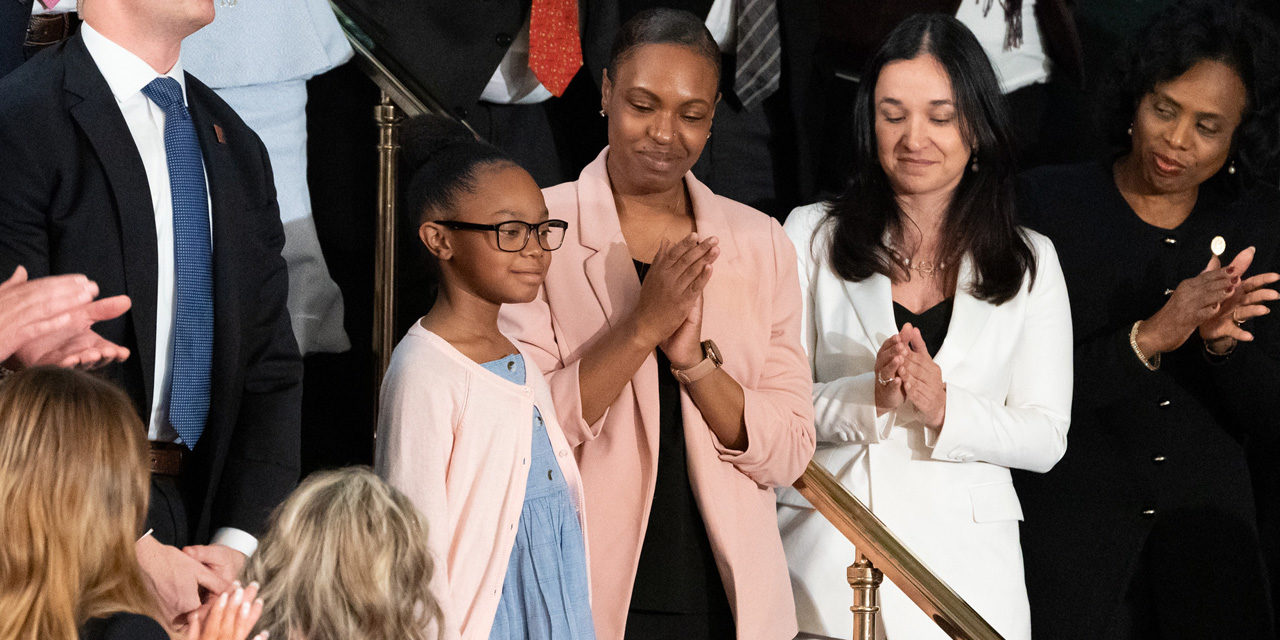If you watched the State of the Union Address you might remember President Trump introducing Janiyah Davis, a fourth-grader from Philadelphia and her mom, Stephanie, seated in the first lady’s box. Janiyah was not succeeding in the public school she attended, but the family lacked the funds to put her in a private school. To make matters worse, Pennsylvania’s governor had vetoed state legislation that would have provided donor-funded scholarships so that students like Janiyah could afford a better education than a public school could offer her.
When President Trump announced a scholarship would be provided to her, she and her mom laughed and cried, and many watching (me included) couldn’t help tearing up a bit as we saw just how much it impacted them.
That same night, the President called upon Congress to take action to help others in similar situations, saying, “Now I call on Congress to give one million American children the same opportunity Janiyah has just received. Pass the Education Freedom Scholarships and Opportunities Act — because no parent should be forced to send their child to a failing government school.”
The bill, S.634 in the Senate, was sponsored by Senator Ted Cruz (R-TX). There is a companion bill in the House known as H.R. 1434 sponsored by Rep. Bradley Byrne (R-AL).
Introduced in Congress almost a year ago, the bill would provide opportunities for elementary and secondary education students, as well as those in vocational schools. This bill would be a major win for those struggling in the public schools.
Sen. Cruz, in a press statement at the time, heralded the bill, which is patterned after a successful Alabama law.
“I believe every student has the fundamental right to a quality education, as a quality education is the gateway to the American dream and stable, family-sustaining employment,” Sen. Cruz said. “I introduced the Education Freedom Scholarships and Opportunity Act, which will drive increased investment in our students, by creating a federal tax credit for taxpayers that donate to scholarship organizations supporting elementary and secondary education as well as secondary and post-secondary workforce training. My bill allows for scholarships to give elementary and secondary students a personalized education experience, as well as scholarships for career and technical education, apprenticeships, certifications, and other forms of workforce training for postsecondary students.”
Eighteen states currently have legislation similar to S. 634.
By providing federal tax credits for those who donate, the bill is designed to reward charitable giving while keeping the program from depending on federal tax dollars.
And because education programs ought to be primarily a state issue, the bill allows states flexibility to “opt in” to the program, as well as to create the scholarship programs that are necessary to meet each state’s specific needs. It is not a mandatory, top-down federal program.
We will be following this excellent bill through Congress and keep you apprised of its status.






